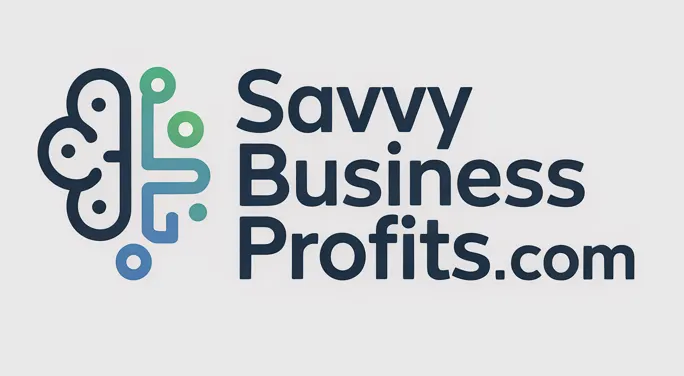# Startups and Growing Businesses Ditching Staff for AI Agents: A Survival Strategy or a Risky Gamble? 🤖
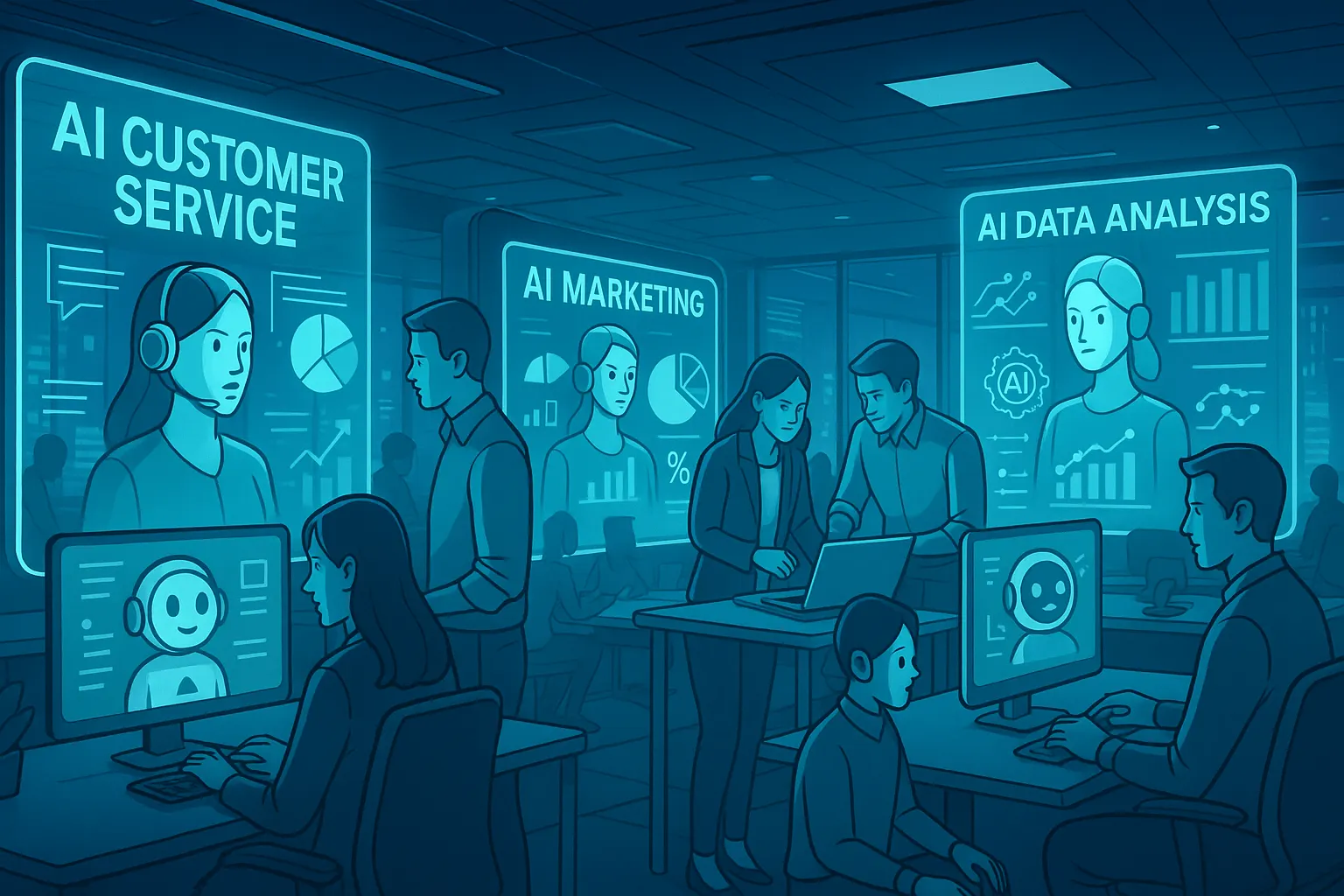
Ever felt like there aren't enough hours in the day? Startup life is a whirlwind – a constant race against time and resources. Now, imagine a world where AI agents handle repetitive tasks, customer service inquiries, and even marketing campaigns, freeing up your human employees to focus on innovation and growth. Sounds like a dream, right? Well, for some startups, it's becoming a reality. But is replacing staff with AI agents a smart move, or a recipe for disaster? Let's dive into why this trend is gaining traction, the potential benefits and drawbacks, and what it means for the future of work.
Key Takeaways:
- 💰 Startups are increasingly turning to AI agents to cut costs and improve efficiency in a tough economic climate.
- 🤖 AI agents can automate tasks like customer service, marketing, and data analysis, allowing human employees to focus on higher-value activities.
- ⚠️ While AI offers significant advantages, startups need to carefully consider the ethical implications, potential biases, and training requirements before fully replacing human staff.
- ⚖️ The most successful approach often involves a hybrid model where AI agents and human employees work together, leveraging each other's strengths.
- 🔮 The trend of AI agent adoption is expected to continue growing, reshaping the future of work and requiring businesses to adapt their strategies.
The Rise of the AI-Powered Startup 🚀
In today's competitive landscape, startups are constantly searching for ways to gain an edge. This often means finding innovative solutions to common challenges like:
- Limited Funding: Startups typically operate on tight budgets.
- Talent Acquisition: Attracting and retaining top talent can be difficult, especially when competing with larger companies.
- Scalability: Growing quickly while maintaining quality and efficiency is a major hurdle.
- Operational Efficiency: Streamlining processes and automating tasks are crucial for maximizing productivity.
Enter AI agents. These sophisticated software programs can perform a wide range of tasks that previously required human intervention. Advances in natural language processing (NLP), machine learning (ML), and computer vision have made AI agents more capable and accessible than ever before.
"AI is not about replacing humans, but augmenting their capabilities and freeing them from mundane tasks." - Andrew Ng, Founder of Landing AI
Why Startups Are Embracing AI Agents 💡
So, why are startups specifically drawn to AI agents? Here's a closer look at the key drivers:
- Cost Reduction: This is perhaps the most compelling reason. AI agents can work 24/7 without breaks, vacations, or salaries. While there are upfront costs associated with implementation, the long-term savings can be significant.
- Increased Efficiency: AI agents can automate repetitive tasks, process large volumes of data, and respond to customer inquiries much faster than humans. This leads to increased productivity and faster turnaround times.
- Improved Accuracy: AI agents are less prone to errors than humans, especially when performing repetitive tasks. This can lead to higher quality output and reduced rework.
- Enhanced Customer Service: AI-powered chatbots can provide instant support to customers, answer frequently asked questions, and resolve simple issues without human intervention. This improves customer satisfaction and reduces the workload on human support staff.
- Scalability: AI agents can easily scale to meet changing demands. As a startup grows, it can simply add more AI agents to handle the increased workload without having to hire additional employees.
- Data-Driven Decision Making: AI agents can analyze vast amounts of data to identify trends, patterns, and insights that can inform business decisions. This helps startups make more informed choices and optimize their strategies.
Consider this scenario:
Imagine a small e-commerce startup struggling to keep up with customer inquiries. Hiring additional customer service representatives would be expensive and time-consuming. Instead, they implement an AI-powered chatbot that can handle 80% of customer inquiries, freeing up the existing staff to focus on more complex issues. This results in faster response times, improved customer satisfaction, and significant cost savings.
Real-World Examples: Startups Leading the Charge 🚀
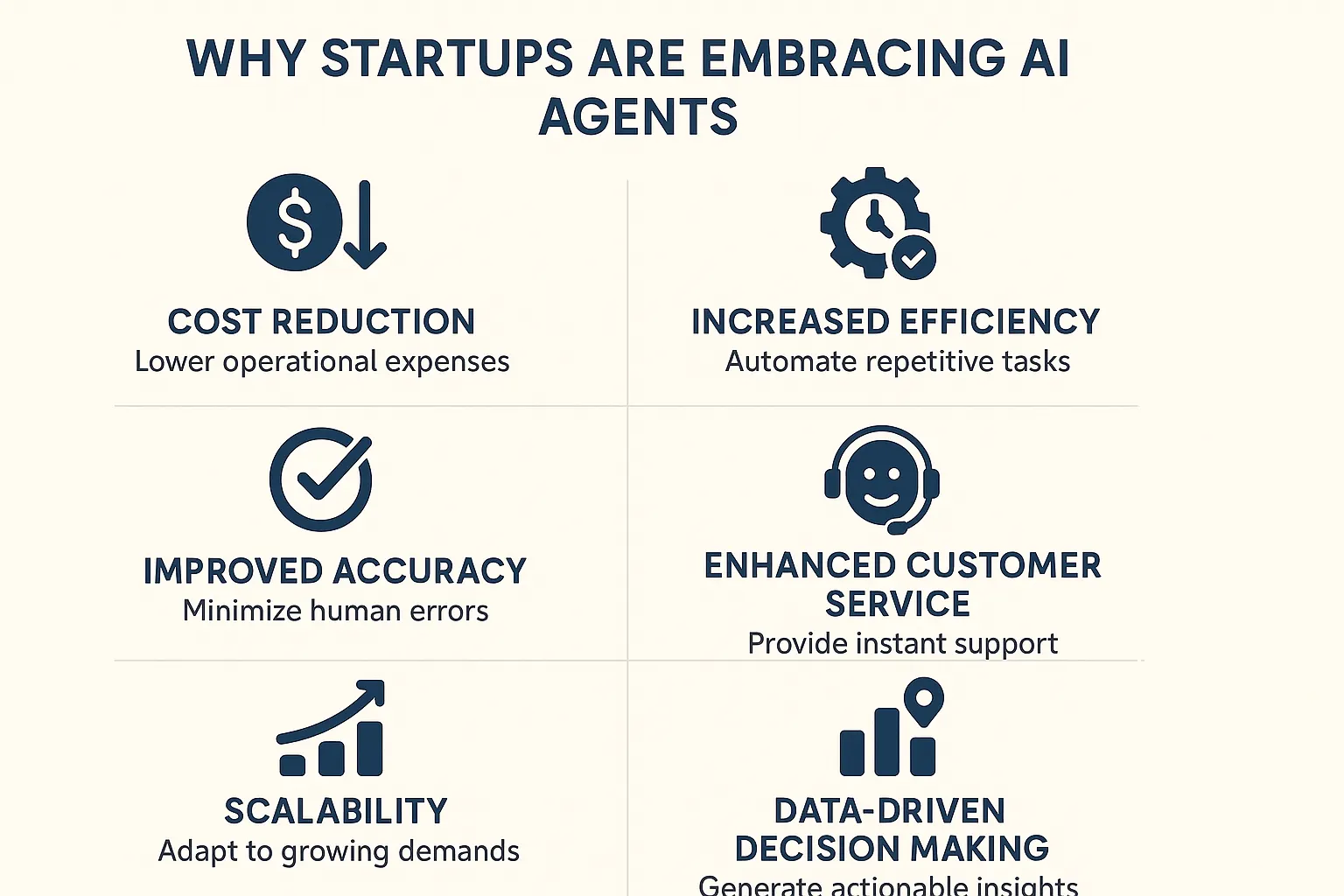
Several startups are already reaping the benefits of using AI agents to cut costs and improve efficiency. Here are a few examples:
- Jasper.ai: This AI-powered writing assistant helps businesses create high-quality content quickly and easily. By automating the content creation process, Jasper.ai reduces the need for human writers and editors, saving businesses time and money.
- Glean: An AI-powered search engine for the workplace. It indexes all company information and allows employees to quickly find the information they need, reducing time spent searching and improving productivity.
- Pipedream: A serverless integration and workflow platform that uses AI to automate tasks and connect different applications. This eliminates the need for manual coding and reduces the workload on developers.
- Eightfold AI: An AI-powered talent intelligence platform that helps companies find, hire, and retain top talent. By automating the recruitment process, Eightfold AI reduces the time and cost associated with hiring.
The Dark Side of AI: Ethical Concerns and Potential Pitfalls ⚠️
While the benefits of AI agents are undeniable, startups need to be aware of the potential drawbacks and ethical considerations:
- Job Displacement: The most obvious concern is that AI agents will displace human workers, leading to unemployment and economic hardship. While some argue that AI will create new jobs, the transition may be difficult for many workers.
- Bias and Discrimination: AI agents are trained on data, and if that data is biased, the AI agent will also be biased. This can lead to discriminatory outcomes in areas like hiring, lending, and criminal justice.
- Lack of Empathy and Emotional Intelligence: AI agents are not capable of empathy or emotional intelligence. This can be a problem in customer service and other roles that require human interaction.
- Security Risks: AI agents can be vulnerable to cyberattacks, and if compromised, they could be used to steal data or disrupt operations.
- Dependence on Technology: Over-reliance on AI agents can make startups vulnerable to technical glitches and system failures.
"We must ensure that AI is developed and used in a way that benefits all of humanity, not just a select few." - Elon Musk, CEO of Tesla and SpaceX.
Ethical Considerations Checklist:
- ✅ Transparency: Be transparent about how AI agents are being used and what data they are collecting.
- ✅ Fairness: Ensure that AI agents are not biased and do not discriminate against any group of people.
- ✅ Accountability: Establish clear lines of accountability for the actions of AI agents.
- ✅ Privacy: Protect the privacy of individuals by ensuring that AI agents are not collecting or using personal data without their consent.
- ✅ Security: Implement robust security measures to protect AI agents from cyberattacks.
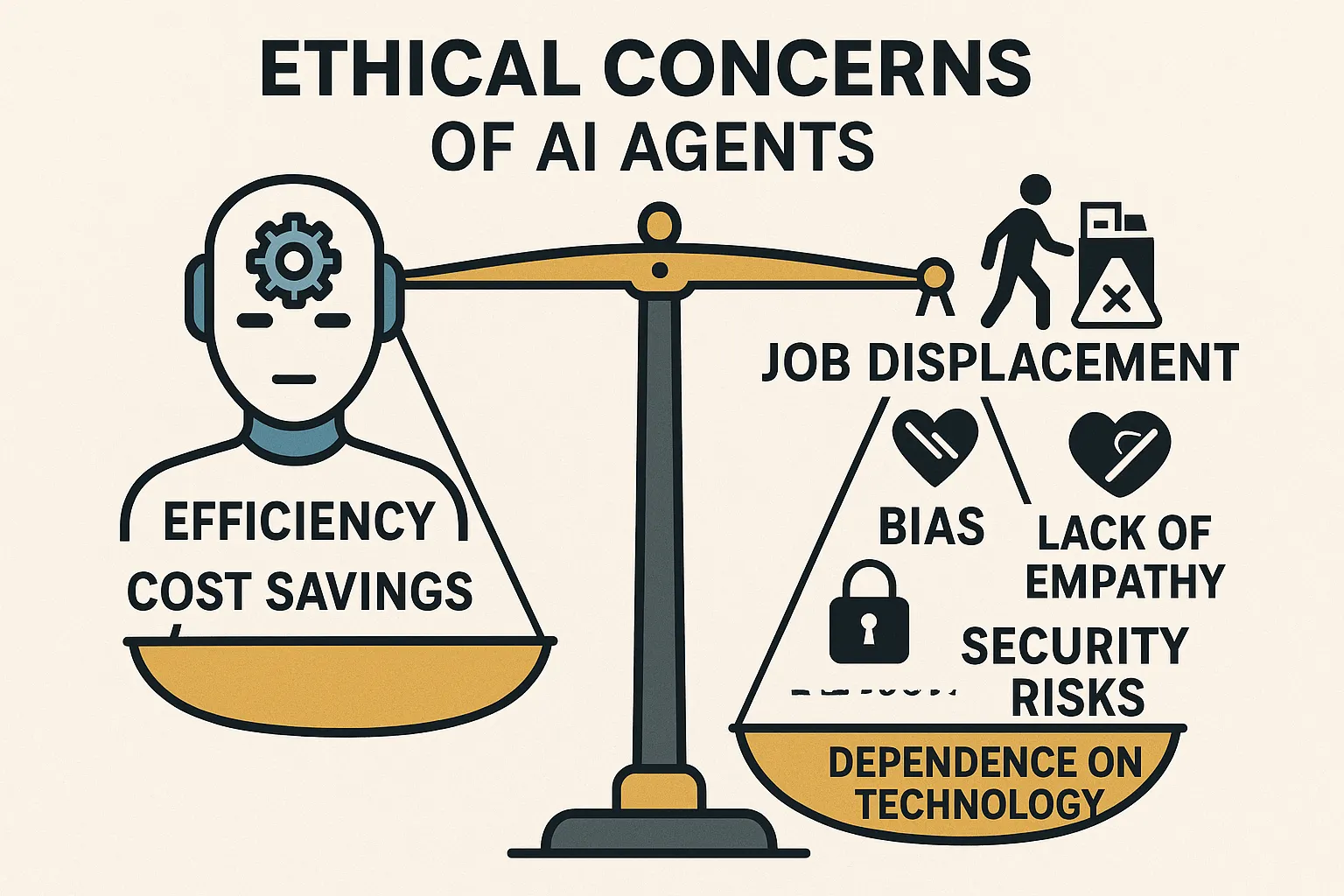
The Hybrid Approach: Humans and AI Working Together 🤝
The most successful approach to using AI agents in startups is often a hybrid model, where AI agents and human employees work together, leveraging each other's strengths.
In this model, AI agents handle repetitive tasks and data analysis, while human employees focus on more complex tasks that require creativity, critical thinking, and emotional intelligence.
Benefits of the Hybrid Approach:
- Increased Productivity: AI agents automate routine tasks, freeing up human employees to focus on higher-value activities.
- Improved Quality: AI agents reduce errors and improve accuracy, while human employees provide oversight and ensure quality control.
- Enhanced Customer Service: AI-powered chatbots handle simple inquiries, while human agents handle more complex issues and provide personalized support.
- Greater Innovation: AI agents provide data-driven insights, while human employees use their creativity and critical thinking skills to develop new ideas and solutions.
- Reduced Risk: By combining the strengths of AI and humans, startups can mitigate the risks associated with relying solely on either one.
Navigating the Future of Work: Skills for the AI Era 🧭
As AI agents become more prevalent in the workplace, it's crucial for startups to invest in training and development programs that help their employees acquire the skills they need to thrive in the AI era.
Key Skills for the Future of Work:
- Critical Thinking: The ability to analyze information, evaluate arguments, and make sound judgments.
- Creativity: The ability to generate new ideas and solutions.
- Emotional Intelligence: The ability to understand and manage emotions, and to build strong relationships with others.
- Technical Skills: The ability to work with AI agents and other technologies.
- Adaptability: The ability to learn new skills and adapt to changing circumstances.
Startups should also focus on creating a culture of continuous learning, where employees are encouraged to develop new skills and stay up-to-date on the latest technological advancements.
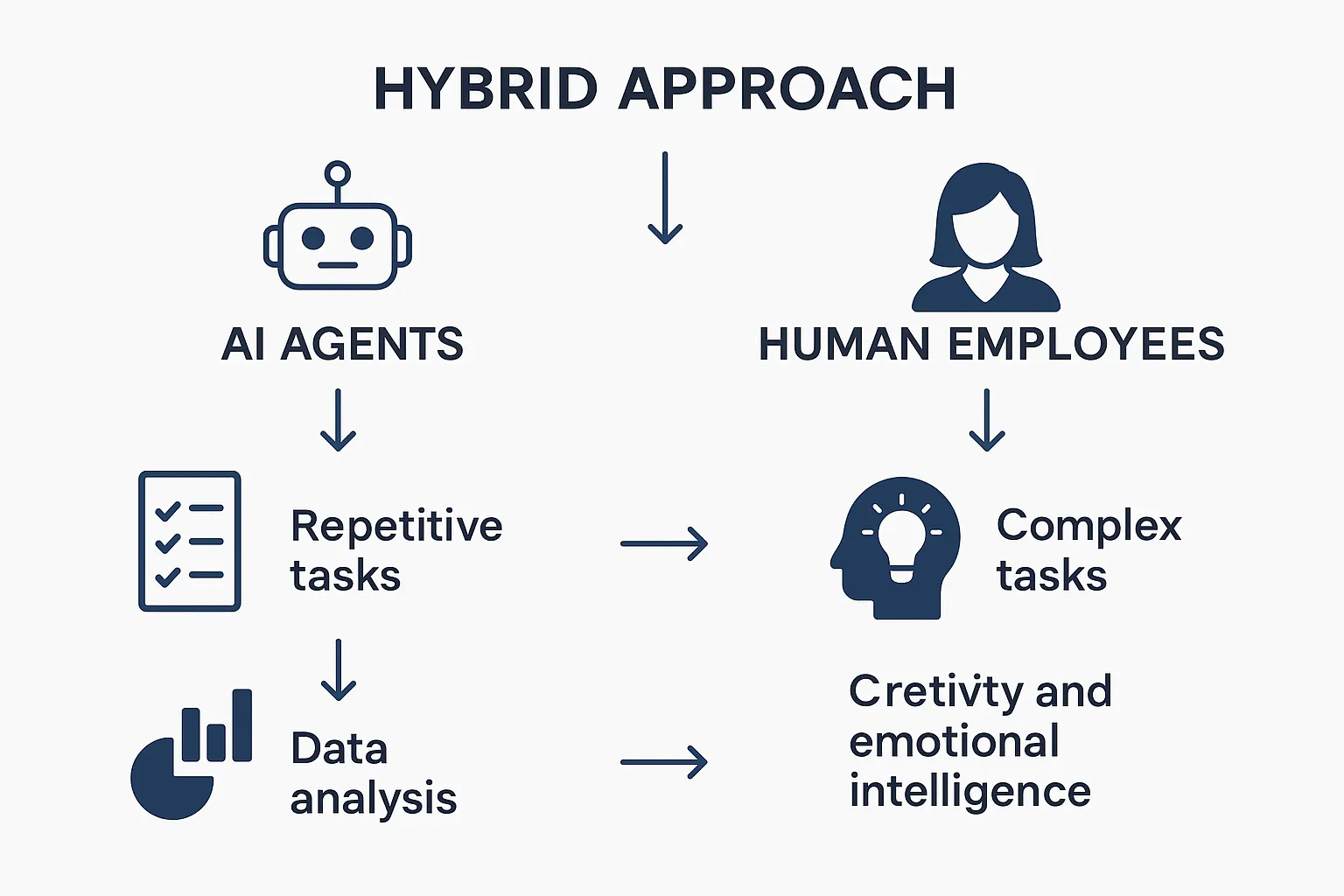
The Future is Now: Embracing AI Agents Strategically 🚀
The trend of startups using AI agents to cut costs and improve efficiency is likely to continue growing in the coming years. As AI technology becomes more sophisticated and accessible, even more startups will be able to leverage its benefits.
However, it's important to remember that AI is not a silver bullet. Startups need to carefully consider the ethical implications, potential biases, and training requirements before fully replacing human staff with AI agents.
The most successful approach will likely involve a hybrid model, where AI agents and human employees work together, leveraging each other's strengths. By embracing AI strategically and investing in the skills of their employees, startups can position themselves for success in the future of work.
Final Thoughts:
The rise of AI agents presents both challenges and opportunities for startups. By carefully considering the potential benefits and drawbacks, and by adopting a strategic approach to implementation, startups can leverage AI to cut costs, improve efficiency, and gain a competitive edge. But remember, technology is a tool, and the best results come when used in harmony with human ingenuity. Don't just replace – empower! ```
